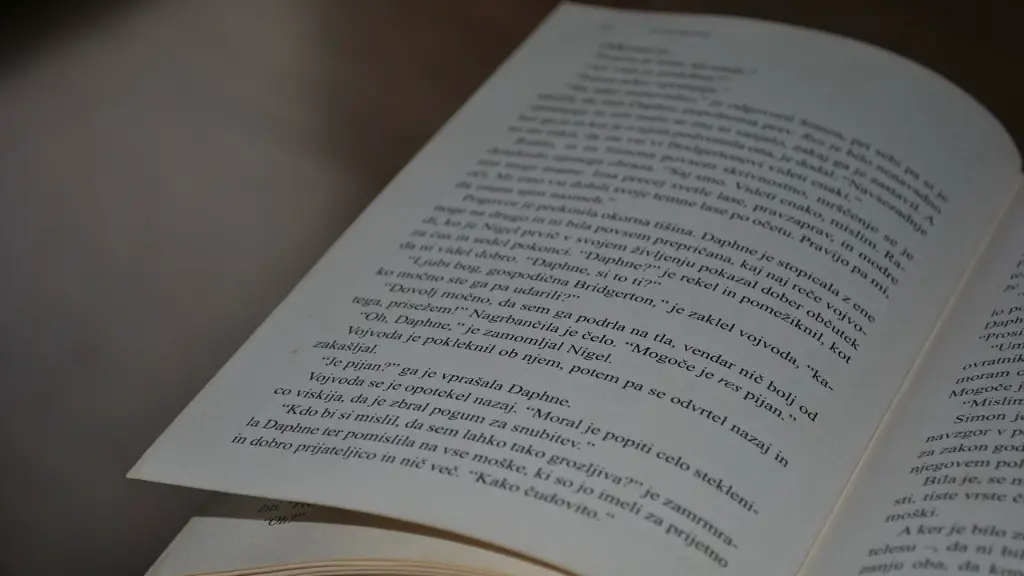What Poetry Means
Poetry holds a special place in literature – from Shakespeare to Keats and beyond, poets have the power to capture emotion, express complex ideas and thoughts, and inspire the imagination. Though poets may use the same words as prose writers, the way poets string words together gives poetry a unique form and helps readers to engage with their subject in a different, often more powerful and personal, way.
It is believed that poetry began as an oral tradition. People used poetry to tell stories, as an expression of their emotions and as a form of entertainment. The oldest known poem dates back to around 2500 BC and was discovered on a tablet in Sumer, a region of Southwest Asia. In Ancient Greece and Rome, Homer wrote the Illiad and The Odyssey, and in Ancient India and China, poetry flourished in several languages.
In the Middle Ages, poetry was an important part of the church’s message, and some of the great medieval poets wrote in Latin. In the Renaissance, poetry experienced a golden age, with the works of William Shakespeare and Edmund Spenser being among the greatest pieces of English literature. In the Romantic period of the 18th and 19th centuries, poets such as Wordsworth and Coleridge wrote about nature, emotion, and spirituality.
Today, poetry is as diverse as the poets who write it. There is no single definition of what makes a poem a poem and what it means; it is a subjective and complex form of creative expression. Different poets and readers will have different interpretations of the same poem. Some readers may be looking for deeper meanings in the poem’s words, while others may be more interested in the poem’s form and the way it is structured and presented.
Though poetry can be beautiful, it can also be powerful. Poetry can be used to reflect and explore our emotions, thoughts, and experiences, and can help us process and make sense of our lives. Various poetic forms – from sonnets and ballads to haikus and free-verse – can help us capture different emotions and nuances in our writing. Poems can also be used to express deep love, sadness, grief, and joy.
At its core, poetry is a unique form of artistic expression. It allows poets to express their ideas, feelings, and experiences in a creative and meaningful way. Poetry can provide comfort and clarity during difficult times, help us capture moments, and tell stories in a way that is truly unique.
History of Poetry
Poetry has existed in some form or another in almost every culture on earth. The history of poetry goes as far back as Ancient Mesopotamia, where some of the earliest known poems were written in Sumerian. Ancient Egyptian poetry often included religious and magical elements, while the Ancient Greeks wrote epic poems about the gods and heroes of their land.
In the Middle Ages, troubadours sang stories of courtly love, and in the Renaissance, the works of William Shakespeare, Ben Jonson, and Edmund Spenser remain some of the most influential pieces of English literature. In the 18th century, romantic poets such as Wordsworth, Coleridge, and Blake wrote about nature and emotion, while the 19th century saw the birth of American poets such as Walt Whitman and Emily Dickinson.
In the 20th century, modernist poets such as T.S. Eliot and Ezra Pound wrote about the turmoil of the world around them, while the Beat Generation of poets such as Allen Ginsberg, Jack Kerouac, and Lawrence Ferlinghetti wrote about their experiences in a vibrant and counterculture way.
Today, poets write about a wide range of topics – from love and loss to politics and the environment – and use their poetry to explore our innermost thoughts and dreams. Poetry is alive and well, and continues to be appreciated by readers around the world.
Types of Poetry
Poets can choose from a wide range of poetic forms when creating their work. These forms include traditional forms such as sonnets and ballads, as well as more modern forms such as free verse and spoken word. Each type of poem has its own unique structure, allowing poets to express themselves in a unique and creative way.
The sonnet is one of the most popular poetic forms. It is typically written in 14 lines, with a specific rhyme pattern and meter. This form dates back to the 13th century, and has been used by some of the most beloved poets, including Shakespeare.
Haikus are a popular Japanese poetic form, consisting of three lines of five, seven, and five syllables, respectively. Haikus are often associated with nature, and can be both beautiful and poignant.
The free verse poem is a more modern form of poetry. It does not follow the same rules of rhyme and meter as traditional forms, and instead allows the poet to express their thoughts and feelings in their own style. This form is popular with many modern poets, and has been used to express a wide range of topics.
Spoken word is a type of performance poetry that focuses on delivering a poem in an energetic and engaging way. Spoken word poems use rhythm and performance to bring the poem to life, and are often rooted in activism and social justice.
Writing Poetry
Writing poetry can be a great way to express your emotions and explore your creativity. It can also be a challenge, but with practice and persistence, anyone can learn to write their own poems.
The first step is to choose a poetic form. If you are looking for a more traditional approach, try a sonnet, ballad, or haiku. If you are looking for a more modern approach, try free verse or spoken word. Once you have chosen a form, read some examples of that form to get a feel for the structure and use.
Once you have chosen your form, focus on the words and expression you want to use. Think about the mood you want to create and how to express your thoughts and feelings. You may want to use vivid imagery, metaphor, simile, or juxtaposition to create an interesting effect. As you write, read your poem out loud to yourself, so you can get an idea of how your words will sound when spoken.
Lastly, never forget that there are no right or wrong answers in poetry. Play around with different words and ideas and have fun with your writing. Poetry is a creative and personal form of expression, so what matters is that your poem reflects your own unique voice and style.
Poetry and Mental Health
Poetry has been used for centuries as a way for people to process their emotions and cope with mental health issues such as depression and anxiety. Writing poetry can be a powerful tool for self-expression, understanding, and healing. It can help us to find meaning in difficult emotions and experiences, and to express our thoughts and feelings in a creative and meaningful way.
Writing poetry can also provide a safe space for us to explore our innermost thoughts and feelings, without feeling overwhelmed or judged. Studies have found that writing about our emotions can help us to heal and find closure, as well as to process our emotions in a healthier way. It can also be used as a tool for self-reflection, allowing us to gain insight into our lives and our behaviors.
Many people also find creative writing activities such as poetry a helpful tool in managing their mental health concerns. Crafting and reading poems can help to reduce symptoms of depression and anxiety, and help us to feel more connected to ourselves, our emotions, and the world around us.
Poetry in Education
Poetry is an important part of education, as it can help to develop critical thinking skills, enhance literacy, and foster creativity. Not only does poetry help to instill an appreciation for literature and the written word, but it can also teach students to express their ideas in creative and meaningful ways.
In addition to teaching students how to write and appreciate poetry, having students read and discuss poetry can also be beneficial. Exploring different poems can help students to gain a better understanding of their own emotions and experiences, while providing them with an opportunity to reflect on their lives and the world around them.
Finally, poetry can be used to develop a love of reading. Poems are often short and easy to read, which can make them attractive to struggling or reluctant readers. Plus, since poems come in a variety of forms and styles, there is sure to be something for every reader.
Poetry and Moral Values
Though it may not be immediately apparent, poetry can play an important role in developing moral values and fostering empathy. Many poets write about social issues, inequality, and injustice, helping to raise awareness and encourage readers to think more deeply about the world around them.
Poetry can also help us to view the world from a different perspective and to empathize with different cultures and viewpoints. By challenging us to think outside the box, poetry can help to foster understanding and compassion, and open our hearts and minds to new ideas and possibilities.
Finally, poetry can be used as an agent of change. Through their work, poets can draw attention to pressing social issues, offer their own insights and opinions, and encourage readers to stand up for what they believe in. Poets can use their words to inspire, to educate, and to effect meaningful and lasting change in the world.





